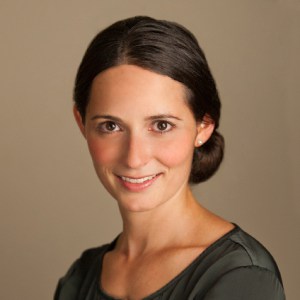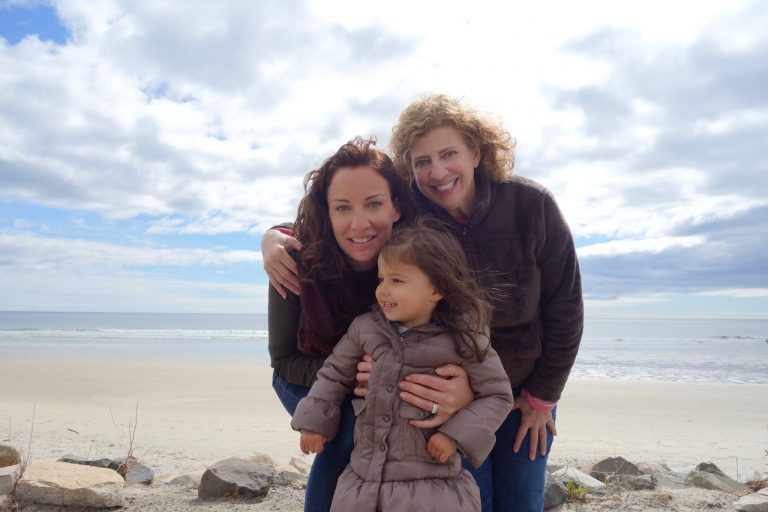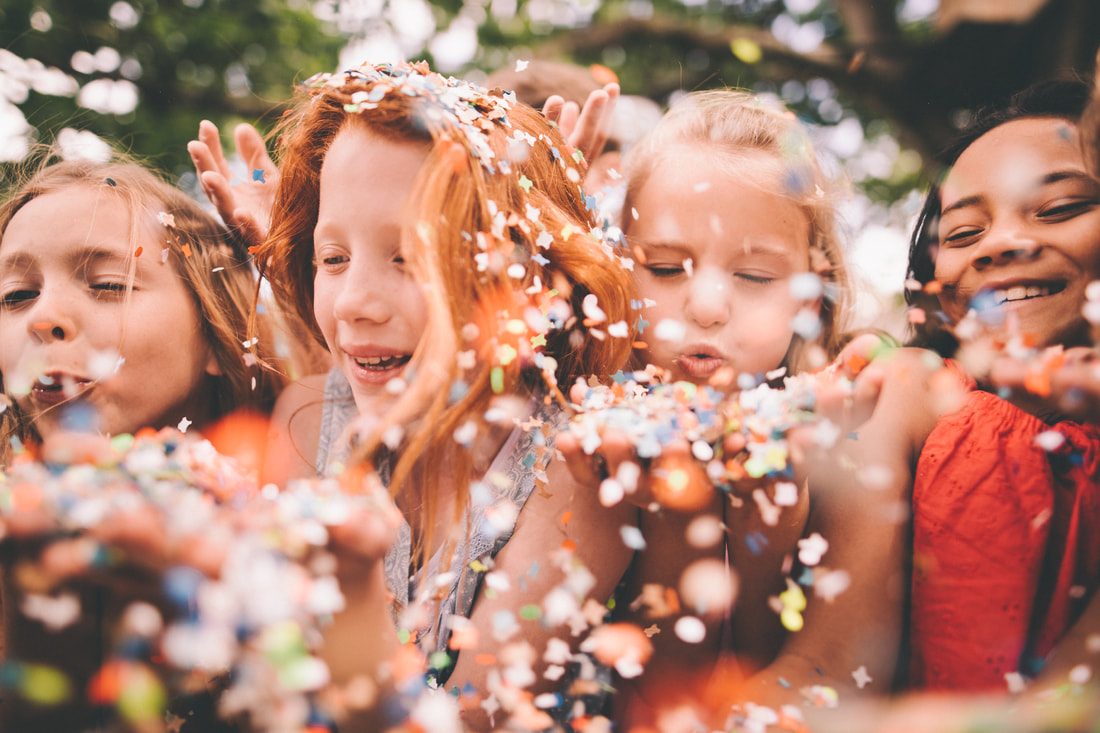|
According to the CDC’s Autism and Developmental Disabilities Monitoring, approximately 1 in 68 children have autism spectrum disorder and around 1 in 6 children in the US have a developmental disability. It’s critical for these children to have a strong support system in place, and that the child’s parents and caregivers be equipped with the proper tools as to how to best interact and communicate with their child. Here is where Rachel Cortese, one of the awesome South Slope Pediatrics moms, comes into play.
Rachel is a renowned Speech Language Pathologist based out of Brooklyn with over 12 years of experience. This February she is introducing a parent-based intervention program for parents of children with Autism Spectrum and Social Communication Disorders at Brooklyn College, which will help provide parents with the tools they need. Let’s get to know her and learn about her invaluable program in this month’s interview! SSP: Before we dive into this program you are launching, can you please tell us a bit about yourself and what it is that you specialize in? Sure! I live in Brooklyn with my husband and two sons. I am a pediatric speech language pathologist and behavioral therapist. I work with families in Brooklyn, Manhattan and East Hampton, NY. My expertise is in the evaluation and treatment of toddlers with delayed language development, children with stuttering disorders and speech sound disorders, and communication impairments associated with autism. In terms of my training, I completed a Masters in Communication Disorders from the University of Wisconsin-Madison and obtained a Masters degree in elementary education from St. Joseph’s University. I am currently working toward board certification as a Behavior Analyst and have completed advanced trainings in PROMPT, a specialized technique used to facilitate oral motor skills and to remediate speech production disorders, The Lidcombe program, an early intervention behavior based treatment program designed for preschool children who stutter, and the Autism Diagnostic Observation Schedule (ADOS-2), a standardized observation designed to assess behaviors related to autism spectrum disorders. Prior to studying Speech and Language Therapy, I taught Middle School Mathematics for two years in Philadelphia as a Teach for America corps member. I am passionate about the outdoors and taught adaptive skiing to people with disabilities at The Breckenridge Outdoor Education Center in Colorado, and worked as a field guide at wilderness therapy programs helping teenagers who struggled with a variety of behavioral and emotional issues. SSP: What is it about being a speech language pathologist that you are the most passionate about, and why did you choose to focus on this field and specialty? Any parent can attest to the magic of watching their child learn new things and acquire new skills during their first few years of life. Speech and language is one of the first windows we have into the brain and the learning process. I’ve always been fascinated by this process and now as a mom of two young boys, “on the job training” has a whole new meaning! Even though I have chosen to focus on the study of speech and language development, language doesn’t exist in a vacuum and is influenced by so many other things (a child’s attention, learning, temperament and environment to name a few). I work alongside and am always learning from brilliant colleagues who specialize in different aspects of child development and I get to wear so many different hats as I work to facilitate speech, language and behavior changes in a naturalistic and well-coordinated manner. I am most passionate about the intersection between language development and behavior. Effective communication skills are central to a child’s overall wellbeing and when children don’t have a way to express themselves effectively or efficiently, frustration can set the stage for maladaptive behaviors. Although I see children of all ages (birth to seventeen), I find the early developmental period most interesting and ripe for change. I specialize in helping parents learn strategies to successfully shape their child’s communication and behavior skills. SSP: What are some of the more common speech issues you encounter with kids on the spectrum and other social communication disorders? Since no two children with a diagnosis of ASD or social communication disorders are alike, this a difficult question to answer. Some children have significant difficulties with speech production and expressive language and other children with ASD demonstrate advanced speech and language skills. However, although this will look different for every child, one thing that these children tend to have in common is some level of difficulty initiating interactions with others, staying in an interaction with others and difficulty with other aspects of social communication like turn taking or playing appropriately with others. SSP: Let’s talk about the program you are launching February 9th, “More Than Words – the Hanen Program for Parents of Children with Autism Spectrum Disorder”. What is this program and who is it for? More Than Words® — The Hanen Program for Parents of Children with Autism Spectrum Disorder®, is an evidence-based, twelve-week, program for parents and caregivers of young children (ages birth to six) with Autism Spectrum Disorder (ASD) or Social Communication Disorders. In a small group setting, parents and caregivers will learn skills to enhance back-and-forth interactions with their children, help improve their children’s social skills and their understanding of language. The More Than Words® program consists of three individual family sessions and nine small group, parent/caregiver only, training sessions. By the end of the program, parents will know what to say and what to do to be their child’s most important communication teacher. The strategies will become a natural part of the way parents interact with their child. During the 8 group sessions families will learn step-by-step, how to:
SSP: It seems like this is not only an opportunity for parents and caregivers to learn how to make their interactions with these children the most meaningful they can be, but it’s also a chance for them to meet and connect with other families struggling with similar experiences. Do you find parents and caregivers often are lacking the support they need and perhaps feel a bit of isolation? Absolutely. Parents who have previously participated in this program report that one of the greatest benefits of the More Than Words Program is the opportunity it provides to connect with other parents. Parents and caregivers will meet other families in the same situations and will have an opportunity to share experiences, learn from each other and hopefully make new friends with other families who understand their unique challenges. SSP: In your opinion, what is the biggest benefit for those that take part in this 12 week program? Besides the connection with other families, the More Than Words program was developed by expert speech-language pathologists and is grounded in extensive research. The strategies parents will learn can be used naturally, throughout every interaction with their child. Since parents spend the most time with their child, this type of intervention can be way more effective than taking your child to speech therapy once, twice or three times per week. Actually research has shown that trained parents are more effective facilitators of communication development than weekly visits to a professional. SSP: Is there a website one can go to for more information on this program? For those who cannot attend, what do you suggest they do? Yes! For families who want to learn more about the upcoming program at Brooklyn College, they can check out the program details on my website: http://rachelcortese.com/parent-training/parents-of-children-with-autism-spectrum-disorder/. Families are also encouraged to contact me directly by email or by phone for more information and for registration information. My contact information is on my website and below. For families who can’t attend, I’d encourage them to visit my website to learn more about the individual services I offer or to set up an individual consultation. The Hanen Centre’s website also has a ton of amazing articles and accessible information for families. The Hanen Centre was founded in 1975 and is a Canadian not-for-profit charitable organization whose mission is to provide parents, caregivers, early childhood educators and Speech-language Pathologists/ Therapists with the knowledge and training they need to help young children develop the best possible language, social and literacy skills. SSP: Do you have any words of encouragement for those families who have a child with autism or another social communication disorder? Many parents worry about what will become of their children, and when you have a child who has unique and special needs, it’s only natural to wonder about this. While none of us can predict exactly what the future holds, the good news is that the brain is plastic and has the ability to change structurally. This means that children continue to learn throughout the lifespan and research has shown that intensive, early intervention has can “re-wire” the brain. When parents learn strategies and learn to implement them consistently and effectively, they can successfully shape their child’s communication skills, positively affect parent-child interactions, and facilitate behavior changes. Place: All sessions will be held at The Diana Rogovin Davidow Speech, Language, Hearing Center, 4400 Boylan Hall, Brooklyn College, 2900 Bedford Avenue, Brooklyn, NY 11210 Cost: $150 per family for the entire 12 week program For registration and more information please contact: Rachel Cortese, MS Ed, MS CCC-SLP Email: [email protected] Phone: (347) 471-0596
0 Comments
As we enter the year of 2017, we have never been surrounded by so many troubling world events. It’s impossible to escape – we’re being hammered with it on social media, TV, radio, and throughout our daily discussions with friends and family. There is no time more important than NOW to focus on the GOOD in the world, reminding ourselves to always be kind and loving… and we must all work hard together to spread that love around.
How do we do that? A great place to start is with our children. Let’s talk to our children about what is important in this life, and that is KINDNESS and LOVE. Have you wondered what these words mean to them? Pure, honest and innocent, they speak from their hearts without any hesitation or inhibitions. Let’s hear what these two words mean from their own mouths, and let these words of wisdom give us all a little hope and inspiration. What Does Kindness Mean to You? – Being a good person to your family, and taking care of them when they are sick or feeling sad. If someone is having a bad day, be extra nice to them and don’t bother them – Parker, 7 – Kindness is being nice to a friend, especially if someone is playing alone. Never make fun of someone and share your food – Cameron, 9 – To be kind means to standing up for someone and care for them and generally be there for them – Celia, 6th grader – Being kind means standing up for one another, helping each other and taking care of each other – Kira, 4th grader – To be kind is to have respect – Stephen, 4th grader – Kind means to be nice to someone – Joseph, 1st grader – To respect others, show how much you love them and helping others who need help – Kailei, 4th grader – To be kind means not to be mean to people – Anonymous, 4th grader – Kind means loving, treating others with respect – Anonymous, 4th grader – Be nice to others, help and be happy and helpful – Owen, 11 – Kindness means to help others and to forgive and forget and be nice to others – Peyton, 9 – That you don’t be mean and say hurtful things – Finn, 6 – When you feed me – Dylan, 3 – It helps love get around the world – Damon, 9 – Kindness is you need to treat people good – Harper, 5 – Being nice to everyone you know – Avery, 5 – When you’re being kind to someone you’re being nice to them and you’re being their friend – Val, 8 – When you’re being nice to someone – Ellie, 8 – Giving kisses and hugs and being nice – Emmett, 3 – Kindness is doing what you know is right to make other people happy – Evan, 11 – Be kind – Juno, 4 – Being nice and thoughtful – Nina, 7 – When you’re being nice and helping – Amaya, 4 – Being friends with someone – Cole, 6 – Kindness is helping someone – Isaac, 8 – Being calm, nice and giving kisses to someone – Alina, 4 – To make someone who is sad – make them happy, and you’re kind hearted- like you’re being nice to someone and they really appreciate it and they’ll be nice to you – Anonymous, 4th grader What Does Love Mean to You? – Love is always telling someone you love them more. If someone looks like they had a bad day, give them a long hug that usually cheers them up! Love is also making something for them, not buying a gift. I think that shows a lot of love – Parker, 7 – Love is doing what you don’t really want to do because you know that person wants to do that, like I don’t always want to play UNO but I know that my sister does so I do it to make her happy – Cameron, 9 – Having appreciation for people – Celia, 6th grader – Love means being there, hugs, kisses, fully being there and helping them. To be present and visible – Kira, 4th grader – Love is what you feel when you really care about someone – Stephen, 4th grader – Love means when you care for people so much – Joseph, 1st grader – Love means helping others around you, sharing and keeping others safe and comfortable – Kailei, 4th grader – Love is when you really care for somebody or something – Anonymous, 4th grader – Love is honesty, friendship, happiness and helpfulness – Anonymous, 4th grader – It keeps people together and makes people happy – Owen, 11 – It means it makes happiness and makes a happy thought – Peyton, 9 – It’s happiness in your heart and you have it in your body – Finn, 6 – When you feed me more – Dylan, 3 – Love makes the world go around – Damon, 9 – Kissing – Mia, 4 – Family – Victor, 11 – People loving people – Harper, 5 – Liking someone but a lot – Avery, 5 – Love is about friendship and being nice and hugs and kisses – Ava, 5 – When you love someone you want to take care of them and if they’re sick you want to help them – Val, 8 – When you treat something or someone nicely and when you like them – Ellie, 8 – Pancakes – Luke, 4 – Giving kisses – Emmett, 3 – Something really enjoyable or someone that you look forward to seeing – Evan, 11 – I love you, to love everybody – Juno, 4 – Loving, sharing and caring – Nina, 7 – I love you – Amaya, 4 – Love is taking care of someone and marrying them – Cole, 6 – Love is family – Isaac, 8 – Love is mommy and daddy, God and friends – Alina, 4 – Caring for someone else – Tessa, 8 – When you love someone you feel happy inside and very comfortable with them inside – Anonymous, 4th grader “The best portion of a good person’s life are their little, nameless, unremembered acts of kindness and of love”. – William Wadsworth |
Jen Valu
|



 RSS Feed
RSS Feed




